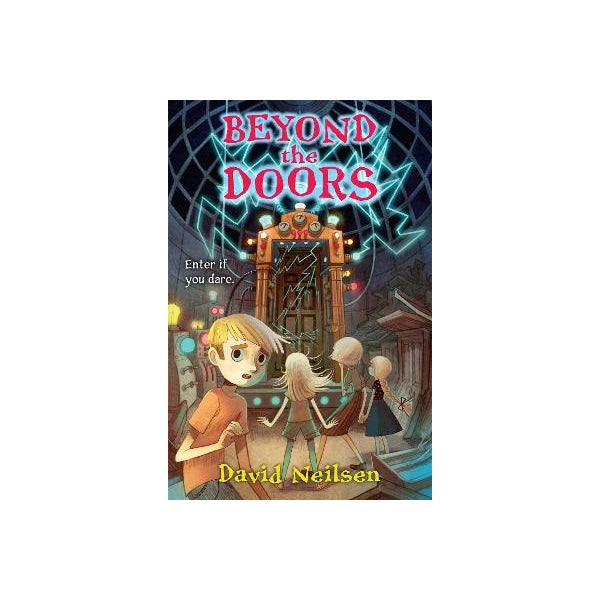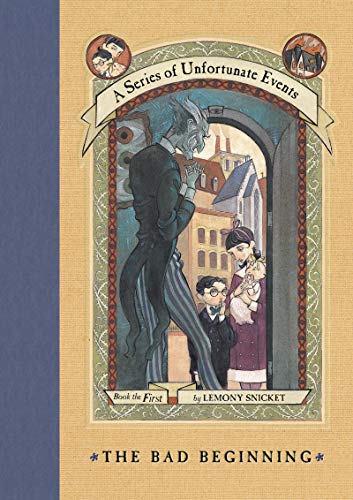Are you wondering at what reading level is The Series of Unfortunate Events suited for? Look no further as we delve into unveiling the perfect reading level for this popular series. With its captivating storytelling and intriguing plot twists, the series has garnered a wide readership across different age groups. Understanding the reading level of a book is crucial for both parents and educators in guiding young readers to appropriate content. Through this blog, we will explore the complexity of the language, themes, and vocabulary used in The Series of Unfortunate Events to determine the ideal age group for readers to fully immerse themselves in the mysterious world created by Lemony Snicket.
Overview of “The Series of Unfortunate Events”
The Series of Unfortunate Events is a popular book series written by Lemony Snicket. It follows the tragic tale of the Baudelaire orphans – Violet, Klaus, and Sunny – as they navigate through a series of unfortunate events following the death of their parents in a mysterious fire.
The Plot
The series is known for its dark humor, intricate plotlines, and eccentric characters. The Baudelaire children are constantly pursued by the villainous Count Olaf, who is after their inheritance. Each book in the series brings new challenges for the siblings as they try to uncover the secrets of their family’s past.
Themes and Tone
The Series of Unfortunate Events delves into themes of loss, resilience, and the search for truth. The tone of the books is often satirical and sarcastic, with the narrator warning readers of the impending doom that awaits the characters. Despite the dark themes, the series also highlights the importance of family and sticking together in tough times.

Determination of Reading Level
When determining the reading level of a book series like “The Series of Unfortunate Events,” several factors come into play. One commonly used method is the Flesch-Kincaid Grade Level formula, which analyzes sentence length and syllable count to assign a readability score.
Flesch-Kincaid Grade Level
The Flesch-Kincaid Grade Level formula calculates the reading difficulty of text by considering the average number of syllables per word and the average number of words per sentence.
This method provides a numerical indicator of the reading level, giving educators and parents insight into the complexity of the text.
Other Factors
In addition to formulas like Flesch-Kincaid Grade Level, other factors such as vocabulary complexity, sentence structure, and thematic content also contribute to determining the appropriate reading level for a specific audience.
- Vocabulary Complexity: The use of advanced vocabulary can increase the reading level, while simpler words cater to younger readers.
- Sentence Structure: Complex sentence structures may require a higher reading level, whereas shorter, simpler sentences are more accessible.
- Thematic Content: The themes and concepts explored in the series can influence the reading level, with more mature or abstract ideas raising the complexity.
Factors Affecting Reading Level
Understanding the reading level of a book like “The Series of Unfortunate Events” involves various factors that influence its complexity and suitability for different age groups.
Language Complexity
The vocabulary and sentence structure used in the series play a significant role in determining the reading level. Complex words and intricate sentence constructions may raise the reading difficulty.
Additionally, contextual clues can be used to decipher unfamiliar words, aiding comprehension for readers.
Plot and Themes
The complexity of the plot, the depth of the themes, and the emotional maturity required to understand the storyline all contribute to the reading level of the series.
- Themes such as loss, resilience, and morality may require a certain level of emotional intelligence from the reader.
Guidelines for Age Appropriateness
When determining the reading level for “The Series of Unfortunate Events,” it’s essential to consider the age appropriateness of the content. This popular series by Lemony Snicket is recommended for readers aged 8 to 12 years old, making it suitable for middle-grade readers.
Content Complexity
The complexity of the storytelling and vocabulary in the series is best suited for middle-grade readers who have a solid grasp of language and comprehension skills. The narration style includes dark humor and intricate plotlines that may be challenging for younger readers.
It is important to evaluate whether the themes of loss, mystery, and adversity presented in the series are appropriate for the emotional maturity of the reader within the recommended age group.
Parental Guidance
Parents and guardians should consider reading a few chapters themselves to gauge the content and themes before determining if it is suitable for their child within the specified age range. This can also facilitate discussions about the events in the book and provide necessary support for any sensitive topics.
- Recommended Age Group: 8 – 12 years
- Parental Involvement: Recommended
- Discussion Opportunities: Encouraged
Impact of Reading Level on Readers
Understanding the appropriate reading level of a book series like the Series of Unfortunate Events can greatly impact readers’ overall experience and comprehension.
Benefits of Matching Reading Level
When readers are matched with books at their appropriate reading level, they are more likely to stay engaged and understand the content effectively. It enhances their comprehension and enjoyment of the story.
Challenges of Reading Above/Below Level
Reading above one’s level may lead to frustration and confusion, while reading below can result in limited growth in vocabulary and reading skills.
Reading Level Comparison
When it comes to the reading level of “The Series of Unfortunate Events,” it is typically recommended for children aged 8-12 years old. This series, written by Lemony Snicket, is known for its intricate plotlines and advanced vocabulary, making it suitable for middle-grade readers.
Reading Level Evaluation
The reading level of the series can be compared to other popular middle-grade books such as the “Harry Potter” series or “Percy Jackson and the Olympians.” While the complexity of vocabulary may vary, the themes and storytelling in these series appeal to similar age groups.
Key Features of the Reading Level
The engaging storyline and dark humor present in “The Series of Unfortunate Events” sets it apart from other children’s books. The unconventional writing style and the use of satirical elements contribute to its unique reading experience.
- The series challenges young readers with its complex themes and encourages critical thinking.
- It introduces children to a wider vocabulary while keeping them entertained with its captivating narrative.
Recommendations for Readers
When it comes to determining the reading level for the beloved series, “A Series of Unfortunate Events,” it is essential to consider various factors. Firstly, understanding the complexity of the vocabulary and sentence structure throughout the books is crucial in assessing the appropriate reading level for readers. Readers should be prepared for a mix of challenging words and dark humor that adds depth to the narrative.
Engage with a Dictionary
Encourage readers to utilize a dictionary while exploring the series to enhance their vocabulary. This strategy can help them grasp the nuanced language used by the author, Lemony Snicket, in unraveling the mysteries and complexities of the storyline. Emphasize the value of learning new words and their meanings for an enriching reading experience.
Introducing readers to the world of wordplay accentuates their engagement with the narrative, fostering a deeper appreciation for the literary elements incorporated in the series.
Discussion Groups and Comprehension
Participating in book discussion groups can enhance readers’ comprehension of the series by providing a platform to exchange ideas, interpretations, and insights. Such interactions can stimulate critical thinking and encourage readers to explore different perspectives, ultimately enhancing their overall reading experience.
- Encourage joining or forming a book club to discuss the series
- Organize thematic reading sessions to delve deeper into the storyline
- Suggest critical analysis of character development and plot intricacies
Frequently Asked Questions
-
- What is the recommended reading level for ‘A Series of Unfortunate Events’?
- The recommended reading level for ‘A Series of Unfortunate Events’ is usually between ages 8 to 12, which corresponds to grades 3 to 7.
-
- Is ‘A Series of Unfortunate Events’ suitable for younger readers?
- ‘A Series of Unfortunate Events’ may contain dark and complex themes that may not be suitable for very young readers. It is typically recommended for middle-grade readers.
-
- Are there any challenging vocabulary or language in ‘A Series of Unfortunate Events’?
- Yes, ‘A Series of Unfortunate Events’ does include some challenging vocabulary and language, which can provide a good opportunity for young readers to expand their vocabulary.
-
- Can adults also enjoy reading ‘A Series of Unfortunate Events’?
- While ‘A Series of Unfortunate Events’ is primarily aimed at young readers, adults can also enjoy the series due to its clever writing, dark humor, and intricate plot.
-
- What age group would benefit the most from reading ‘A Series of Unfortunate Events’?
- Children in the middle-grade age range, typically between 8 to 12 years old, would benefit the most from reading ‘A Series of Unfortunate Events’ as they can appreciate the dark humor and complex themes.
Final Thoughts
As we conclude our exploration into the reading level of the Series of Unfortunate Events, it is clear that this popular series is best suited for readers in the upper elementary to middle school age range. The intricate vocabulary and dark themes may challenge younger readers but captivate older ones. Understanding the complexity of the series can help guide parents, teachers, and young readers in determining if it’s the right fit. Whether you are a fan of the Baudelaire siblings’ unfortunate journey or considering diving into the world of Lemony Snicket, knowing the intended audience and reading level can enhance the overall experience. So, pick up a copy, start reading, and unravel the mysteries that await!



